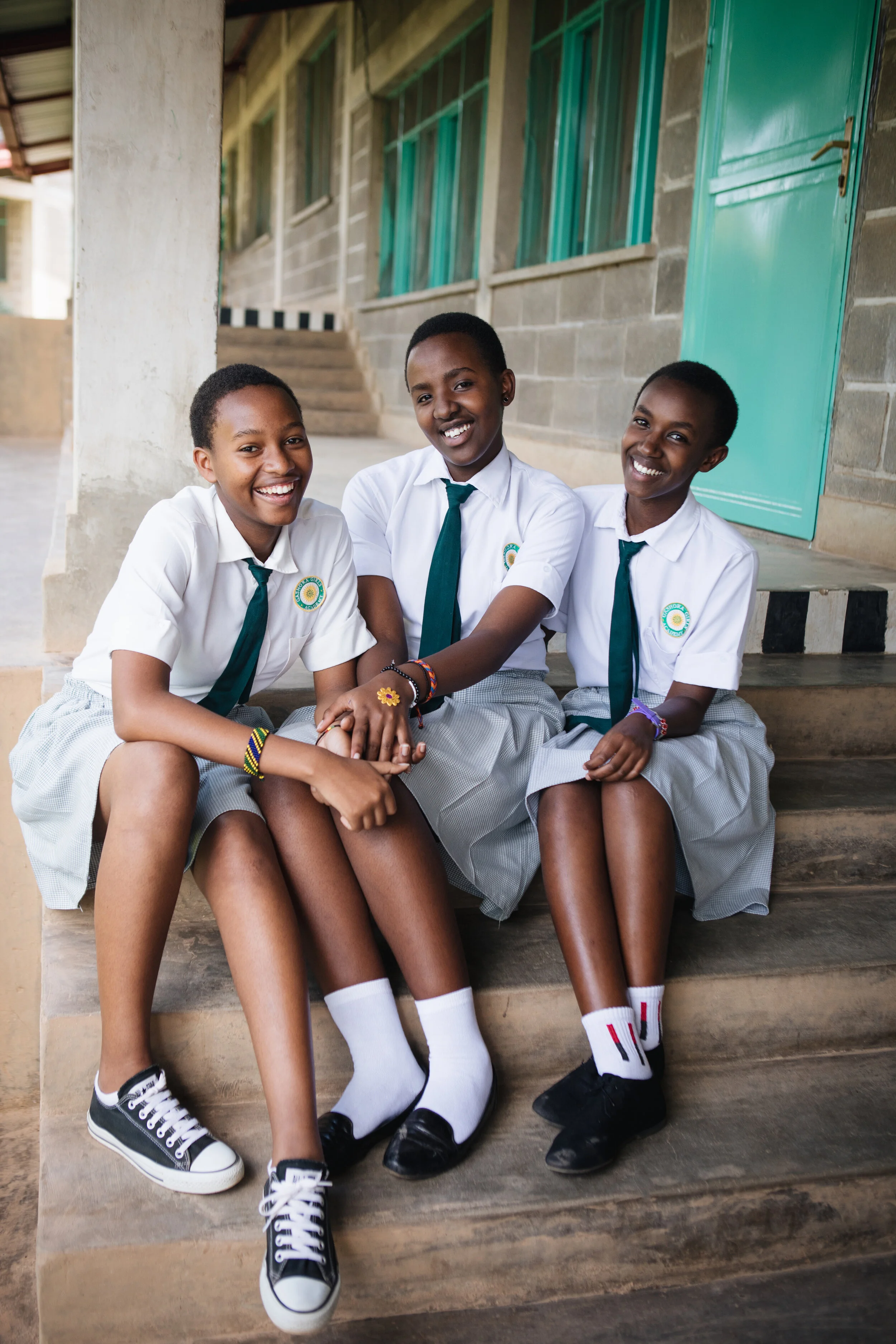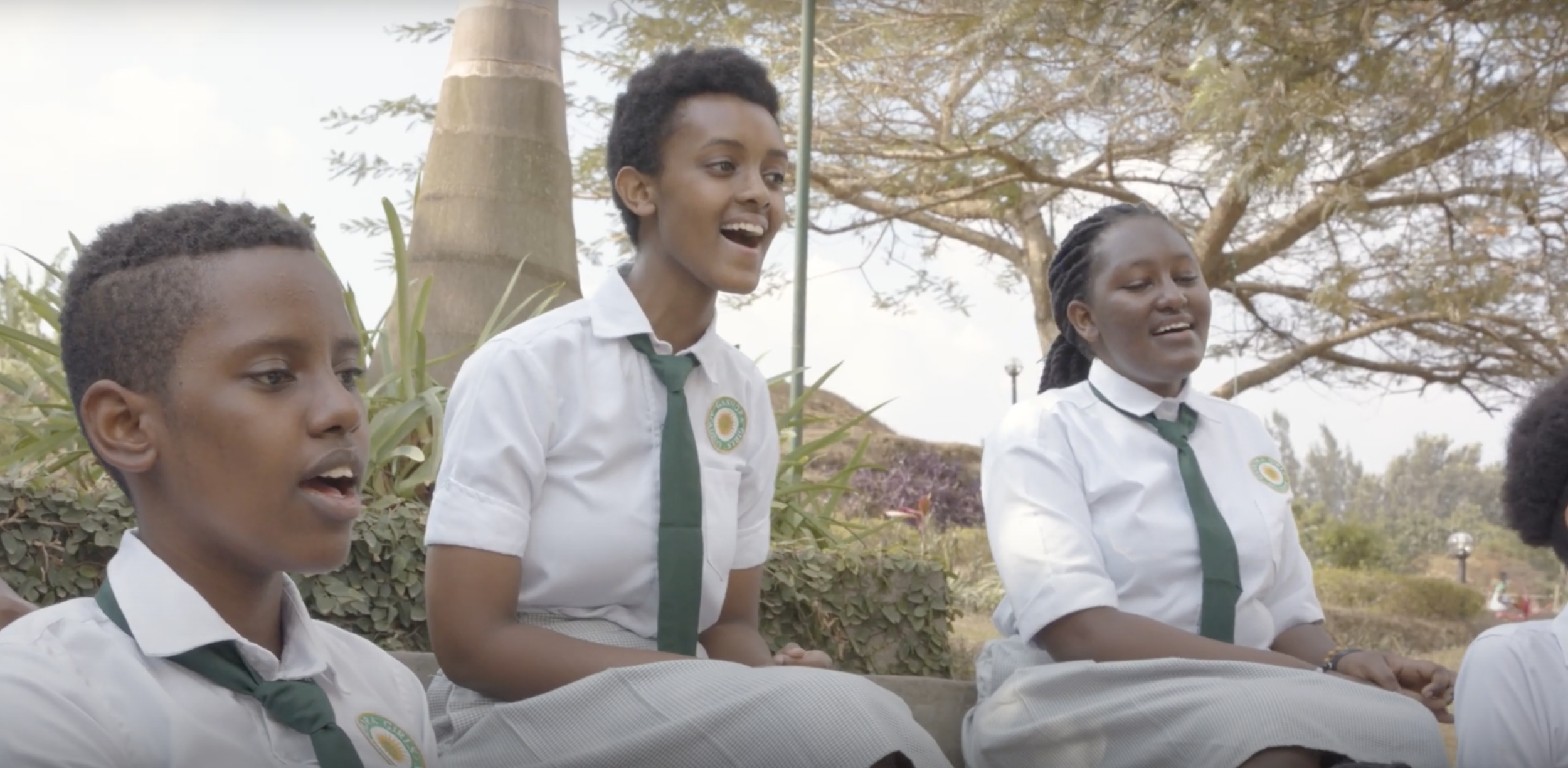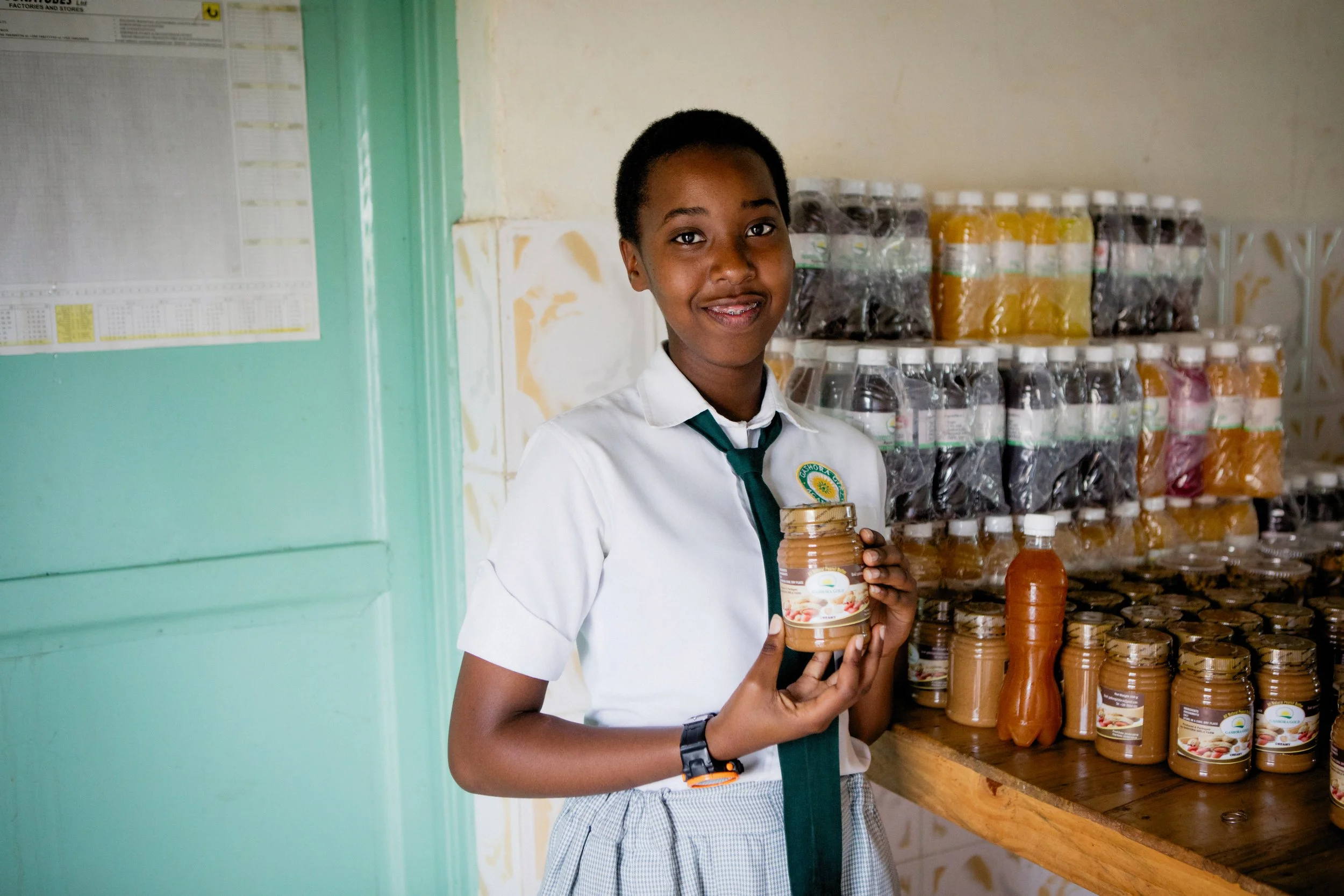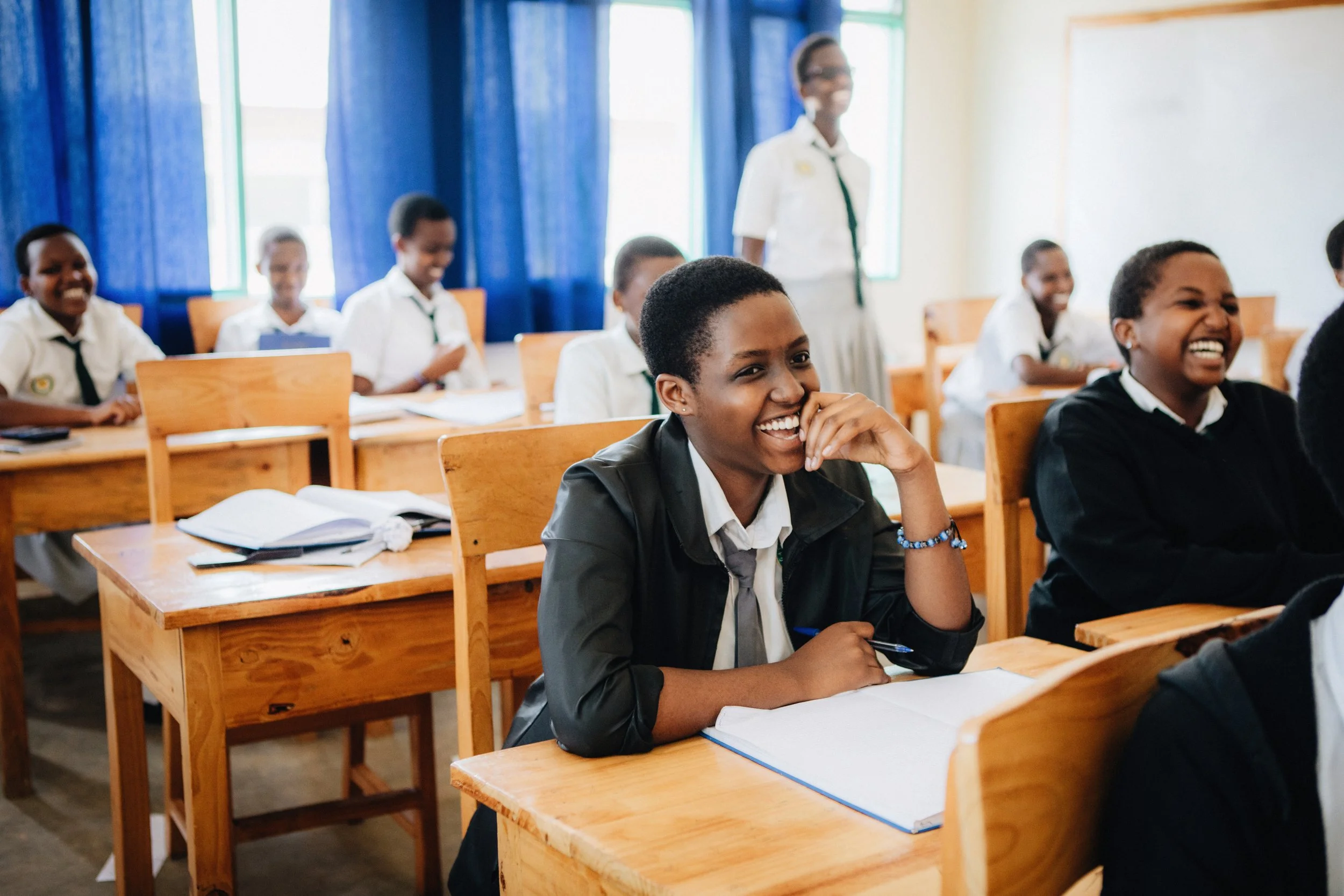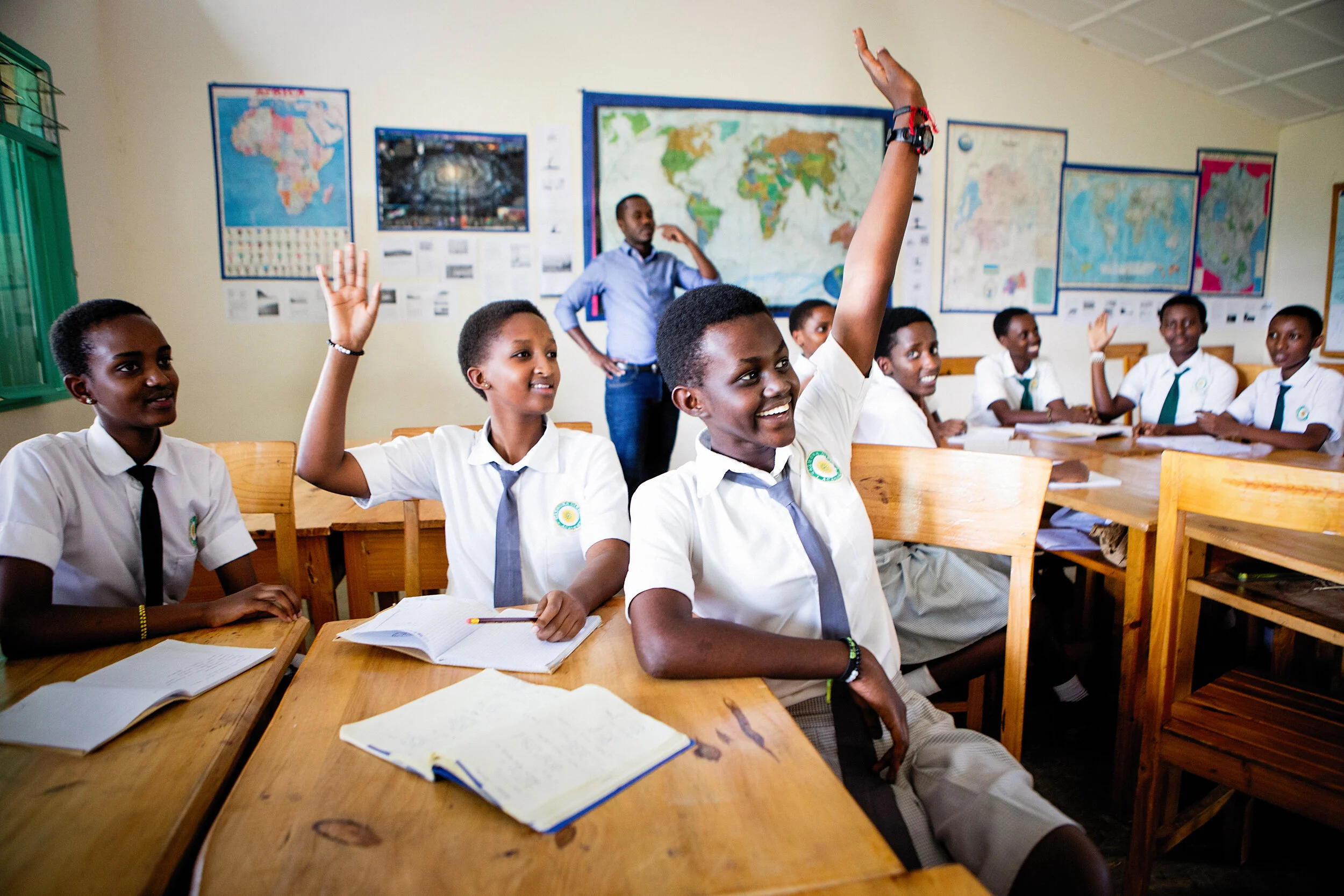
Gashora Girls Academy
Who We Teach
In January 2011, Rwanda Girls Initiative opened the doors of the Gashora Girls Academy of Science and Technology, an all-girls secondary boarding school. It’s the first of its kind, providing the most promising young minds in Rwanda with the confidence, critical thinking skills, and academic support they need to change their communities, their country, and our world.
The Gashora Girls Academy is the most socio-economically diverse school in Rwanda, enrolling girls from all backgrounds and geographic regions of the country. Students are accepted based on academic potential, not financial capacity. 100% of students receive financial aid on a sliding scale, depending on their needs. Most girls pay less than what they would pay if they attended a government school.
Why Girls?
In Rwanda, only 16% of females graduate from high school. There are unique obstacles that many girls face that make it impossible to continue through secondary school successfully. Challenges including extensive household responsibilities, lack of family support, or safety concerns can derail her chance of an education. That’s why we educate and empower Rwanda’s brightest young women in a supportive residential environment.
Empowered with a stellar education, a girl can reach her full potential and create a ripple effect in her family and community. Her economic earnings increase, her health and the health of her future children improve, and the cycle of poverty is halted in its tracks. Investing in girls’ education, especially secondary education, is one of the most powerful levers one can pull to spark systemic change.

Watch "Transcendent"
Spoken Word by Sandrine, Gashora Girls Academy Student

At every drop of my sweat, you grew stronger and stronger,
Giving me wings to fly to this place of unique beauty in diversity.
A place where I found the true peace in my soul,
A place where I found the dignity and value that I have never had,
A place where I found new lives into mine.
A place where my smile came, from hopes of the future.
I have found my voice and know who I am.
I am Gashora.
— Eunice, Class of 2018
What We Teach
All students at Gashora Girls Academy study English, Entrepreneurship, General Paper, and Kinyarwanda (an official language of Rwanda). The rest of their courses is based on the focus of study they choose.
Students choose between a combination of subjects, including physics, computer science, biology, mathematics, chemistry, engineering, and geography. Classes are conducted in English, with a focus on critical reading, listening, speaking, and writing skills.
The Gashora Girls are talented not only in the classroom but also in their many extra-curricular activities. They are accomplished debate team members, eloquent poets, skilled basketball players, and gifted performers in traditional dance. They fulfill 6,000 collective hours of community service each year, helping the local village address issues like food scarcity and climate change.
Leadership and teamwork are taught across all subjects, and students are encouraged to pursue opportunities to step up in school and beyond.
When Rwanda’s best and brightest young women are equipped to lead with empathy and understanding, the future of the world is transformed. Perhaps most importantly, students at Gashora form lasting bonds with one another, creating a sisterhood that will support them for the rest of their lives.

Did You Know?
Up to 80% of food grown in Africa is farmed by women, and 45% of the total labor force in Africa is made up of female farmers. Many of the Gashora Girls Academy graduates pursue an agricultural major in university and will become the future leaders in agricultural development and food security in East Africa. Many students engage in impact projects on our 40-acre school farm, including producing “Gashora-Gold” peanut butter, which we now supply to hotels across Rwanda!

Gashora gave me the greatest gift — the belief in myself to dream big and the self-confidence to think that my dreams, both for myself and my country, are achievable.
— Linda, Gashora Girls Academy Class of 2013
How We Teach
Gashora Girls Academy has always been more than its walls, whiteboards, and chairs — it’s the people who fill those spaces that bring our mission to life. Our leadership, teachers, and staff are comprised of a majority of talented local Rwandans who deeply understand the needs and challenges of their country. Rooted in connections to the local community, they are profoundly impacting the way girls are educated in Rwanda and across all of Africa.
Traditionally, due to a lack of resources and high student-to-teacher ratios, classroom education in Africa (and many other parts of the world) focuses on memorizing and reciting facts, rather than approaching the world with intellectual curiosity. We flipped that model upside down at Gashora Girls Academy. Students are encouraged to debate every topic, ask questions from different angles, and think critically about every issue. Educational subjects come alive with hands-on approaches to learning, visiting real-world applications of subject matter, and challenging students to come up with innovative solutions to the world’s most pressing challenges.
This unique approach has made us a model school in Rwanda, and we're sharing our best practices with other educators to help them bring this student-centered style of education to their own classrooms. This teaching method is one of our contributions to the conversation of education in Africa, and we hope to continue partnering with others to create a vibrant atmosphere of learning and development.

The advice I always give my students is to never learn just to receive high marks, but instead learn to understand, be creative, and be innovative. We are not here to copy what others have already done, but to invent new theories and concepts, to be chemists of today and the future.
— Pascal Dukuze, Teacher at Gashora Girls Academy


